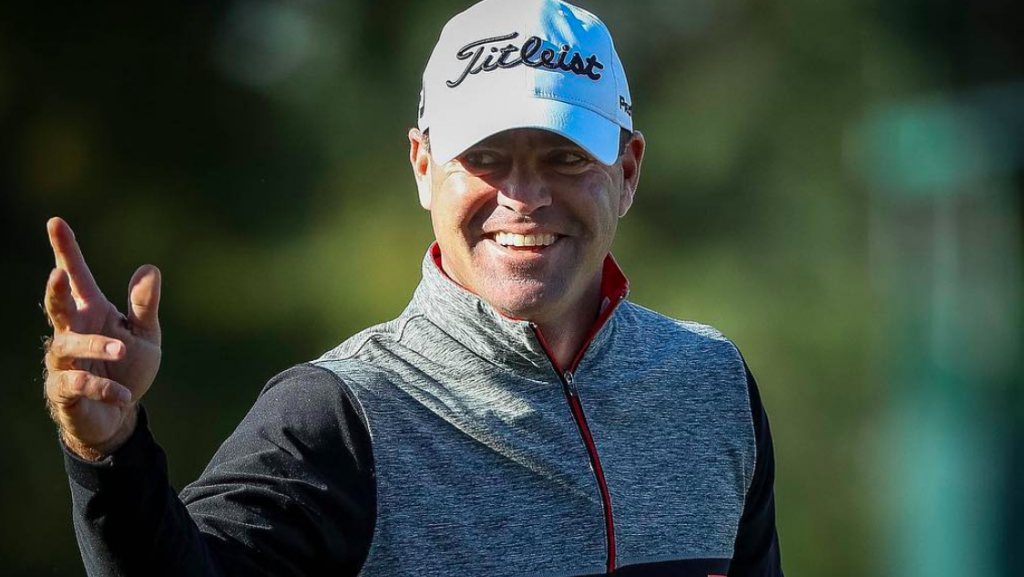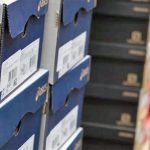Acushnet Holdings Corp., which owns Titleist and FootJoy, reported sales in the third quarter reached $347 million, up 2.3 percent and ahead 2.9 percent on a constant currency basis. The gains were driven primarily by the launch of the Titleist 718 irons and 818 hybrids.
On a conference call with analysts, David Maher, COO, noted that the third quarter is transitional for Acushnet and the industry. He stated, “Northern markets begin the period in high gear with play and fittings at peak levels and then move into inventory management mode as summer turns to fall. Sunbelt markets conversely begin the quarter in their offseason and are in ramp up mode by quarter’s end as they prepare their golf shops for the upcoming winter season.”
But he was particularly encouraged by the 4.6 percent gain in U.S. sales.
Said Maher, “It is encouraging that the U.S. retail market is weathering its structural correction fairly well. The general consensus from our trade partners is that they are faring better now than they did in 2016 or 2015 as there are fewer competitive doors and a greater percentage of their sales is generated from inline products.”
He added, “We reiterate our position that the U.S. market is approaching a healthier state with the supply of OEMs, retail doors, inventory levels and golf courses were in sync with market demand. As we soon head into 2018, we continue to closely monitor the ongoing migration of volume and evolving golfer purchase behaviors as we eventually settle into this new and healthier normal for the golf industry.”
Net sales in regions outside the U.S. were down 0.1 percent, and up 1.1 percent on a constant currency basis, with Korea up 6.4 percent and Rest of World up 6.3 percent, offset by Japan down 6.9 percent.
By product category, Acushnet saw a 3.5 percent decrease in net sales (3.1 percent decrease on a constant currency basis) of Titleist golf balls, driven by sales volume declines in both Pro V1 and performance models. In the U.S., sales volumes were impacted by unfavorable weather conditions as well as increased competitive promotional activity in the marketplace.
Maher said the new Pro V1 golf balls have posted sales and share gains through the first three quarters of the year as golfers have embraced the new and improved Pro V1 and x models.
Sales of its performance models, however, have declined as these have been most impacted by competitive promotional activity in what is the back half of their two-year product lifecycles. He added, “We see this promotional activity largely as a byproduct of the retail correction as golf ball companies come to terms with the new inventory and retail square footage realities of the market,” said Maher.
Looking to 2018, Maher said the company anticipates the promotional activity will continue, albeit at lesser levels than experienced this past year. Acushnet’s golf ball business has also been impacted by wet weather in 2017, which has caused year-to-date rounds declines in the key markets of New England, Mid Atlantic and the Pacific.
“We are encouraged however by national rounds increases in August in September which occurred in spite of sharp declines in the Southeast and Texas resulting from hurricanes Harvey and Irma, where golf understandably took a back seat in these regions as the focus shifted to clean up and recovery, which has progressed well for most of our affected trade partners,” said Maher. “And in the third quarter we successfully introduced the new Titleist DT TruSoft golf ball and looking ahead, our team is busy preparing for new product launches in the first quarter of 2018 as we set out to strengthen our performance ball franchises.”
Titleist golf clubs grew 9.5 percent (10.3 percent increase on a constant currency basis) due to higher sales volumes, primarily due to product launches in our iron series and hybrids.
Maher said the late September launch of the new 718 irons and 818 hybrids met its “high expectations.” He added, “From tour launch to staff player seating and trade partner education, to initial market introduction, this was one of our most comprehensive and well executed golf club launches to-date.”
Maher also said the addition of the new AP3 model has been “especially well received across all regions as initial interest in this players distance iron has been strong.” Vokey wedges and Scotty Cameron putter “performed well” and in line with expectations.
Titleist golf gear rose 1.3 percent (2.1 percent increase on a constant currency basis), primarily due to sales volume growth in its travel gear category.
FootJoy golf wear grew 3.3 percent (3.7 percent increase on a constant currency basis) primarily due to higher average selling prices and a sales volume increase in our apparel category. Maher described the results as “healthy” given the backdrop of a significantly reduced U.S. store count and corresponding inventory reduction in the marketplace.
Said Maher, “Innovative new product has been the foundation of FootJoy’s golf footwear business in 2017. The third quarter launch of the new DNA Helix golf shoe has been very well received and this is in addition to the continued strength and momentum of our Pro/SL spike less shoe. Additional third quarter highlights include the successful introductions of LTS outerwear and FootJoy’s golf leisure for women fall collection.”
Net income attributable to Acushnet improved by $14.8 million to $9.3 million, primarily as a result of lower interest expense and higher income from operations, partially offset by higher income tax expense.
Adjusted EBITDA was $32.2 million, up 15.0 percent year over year. Adjusted EBITDA margin was 9.3 percent for the third quarter versus 8.3 percent for the prior year period.
Q3 gross margin reached 49.8 percent, up 60 basis points year-over-year, primarily driven by its higher gross margin at Titleist Clubs and FootJoy golf wear, partially offset by a lower gross margin in Titleist golf balls.
SG&A was down 0.7 percent versus last year, primarily due to a decrease in bad debt expense, non-repeating IPO transaction costs incurred last year and a decrease in share based compensation.
Looking ahead, Acushnet basically narrowed its guidance for the year:
- Consolidated net sales are now expected to be approximately $1,545 to 1,555 million in 2017 versus 1,545 to $1,565 million previously;
- Consolidated net sales on a constant currency basis are expected to be in the range of a decrease of 1 percent to a decrease of 0.4 percent in 2017 versus a range of a decrease of 0.7 percent to an increase of 0.6 percent in 2017;
- Adjusted EBITDA is expected to be approximately $220 to $225 million in 2017 versus in the range of $220 to $230 million.
Photo courtesy Titleist
















